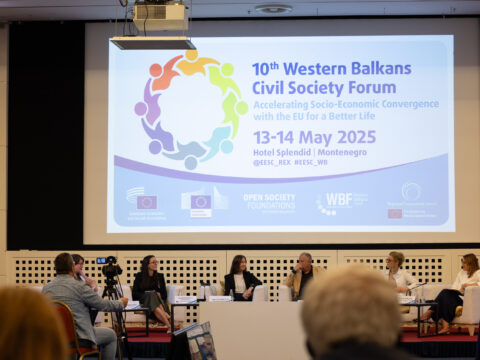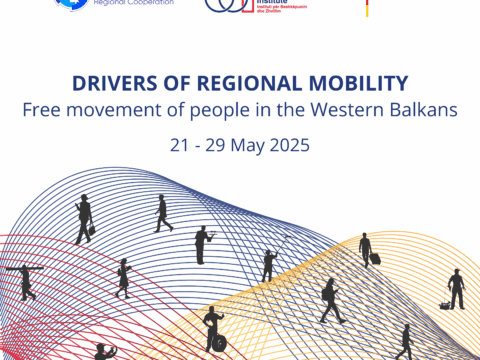In the over-crowded context of regional cooperation initiatives – Cooperation & Development Institute has repertoriated 72 of them [1] – the Berlin Process immediately attracted major attention. The presence of key EU member states that are also major economic partners of the Balkan countries, and of new members states that happen to be close neighbors of the region, kept the process focused and impact-oriented. The new initiative found an immediate echo in the Western Balkans politicians, businessmen and civil society.
Set up on the principle of “three no” – no new budget, no new institution, no new legislation – after four years the Berlin process has produced an amazing array of outcomes. It has provided new impetus to the Enlargement dynamics, to the WB6 regional cooperation, and to the reforms engaged in the Balkan countries.
Berlin Process promoted the Connectivity Agenda with the aim attract new investment in the Balkans, generate growth, and promote employment. Since 2015, through Western Balkans Investment Fund, a total of EUR 246.5 MiO have been approved for 11 connectivity investment grants, as well as EUR 188.9 MiO for connectivity co-financing grants. The bulk of the earmarked EUR 1 billion investments are on the pipeline. Transport, energy and lately digital connectivity projects have received a much-needed boost by jumping at the top of regional investment priorities, and of EU financing.
Berlin Process contribution to the WB6 reforms is crucial and complex. Never before regional cooperation has been included as a condition for EU Accession. Under the Berlin process working together with your neighbor has become the new normal in a region still reeling from the wounds of the past conflicts.
The scope and depth of such cooperation is remarkable: it varies from high level political summits (where the best illustration is Rama – Vucic dynamics), to policy-making cooperation in different sectors through Ministerials; to business cooperation through establishment of different B2B platforms; to scientific cooperation through new scientific regional structures; to youth cooperation and exchange through RYCO and; lastly but very importantly to the cooperation amongst Balkans civil society and regional political actors through the Civil Society Summits.
Through Civil Society summits and other joint activities between CSO – decision makers, the Berlin Process has made possible for Balkans civil society and its citizen to being heard in the policy-making fora. This format has allowed a direct contact amongst policy-makers with their voters and final beneficiaries of public policies, so eliminating the intermediary steps. Strategically, the Civil Society Summits have provided the bottom-up component of Berlin Process by bringing to those high level political Summits, the voice and concerns of the Balkans citizen.
The Berlin process has provided the intellectual agora for an ideological debate to take place on the socio/economic development model used by the Accession Countries in their path to growth and to EU membership. The debate about the efficiency of the market-driven approach and of neo-liberal model of organization of economy, society and state applied in the Western Balkans during the last two decades, has found a perfect echo chamber.
From this point of view, Berlin process in a very innovative way, allows member states and applicant countries to discuss among equals mutual challenges that have the same or similar root causes. Increase of inequality, rise of populism, illegal migration flux, low growth, negative effects of globalizations, increasing regional divergences, terrorism and security, are problems shared by all European countries. These common problems demand coordinated answers. The closure of the Balkan migration route in 2016 is the best illustration of the efficiency of a joint approach.
The 3rd Tirana Conference on Berlin Process in November 2017, singled out some recommendations for the next Berlin process cycle. They include the need to promote and extend regional sectoral cooperation at Ministerial level by also including WB6 Ministers of Interior. The Conference pointed out the need to link big connectivity infrastructure with the territory where they go through and so valorize local resources. It underlined the necessity to improve the visibility of the process by setting clear benchmarks and targets, and monitor so as to increase citizen commitment. Taking into account the fiscal strains of the region, EU must step in with larger resources and innovative mechanisms to support connectivity infrastructure. This is conditional for the Balkans to sustain their growth rate and increase their pace of progress towards EU cohesion targets. To improve the efficiency of this process, WB6 need to be included asap in the discussion about the new Enlargement Strategy.
During its first four years the Berlin Process has been a successful political endeavor encouraging and supporting cooperation between Western Balkan politicians and European Union pairs. It has created the ground for a relevant participation of Balkans civil society in the decision making process, and has kept the European Union perspective open and achievable for the Balkans citizen.
With no additional resources, no legislation and no proper administrative structure, the Berlin Process has succeeded because it responded to a real need for a new way of cooperation between EU and WB6 politicians, between decision-makers and other enlargement stakeholders, and for an innovative way of getting closer and growing strong together. Key supportive EU member states will stay committed to it for as long as there is demand. In the next cycle, the Berlin Process needs to capitalize on its achievements. Crucially, it must deliver tangible results for the Balkans citizen.
[1] see ORI – Observatory of Regional Initiatives
Ardian Hackaj, Director of the public policy platform Shtetiweb at the Cooperation and Development Institute






